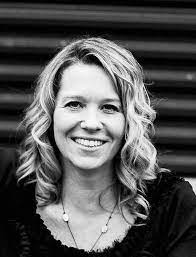By Roger Barbee
In many situations being first is desired. Athletes train to be first in order to stand alone. Explorers take risks to be the first to reach an objective, such as a mountain peak, which will likely be named in the explorer’s honor. Students study to be first in their class to reap scholastic rewards. The winners in professional sports are richly rewarded by fan adulation and huge salaries. In our culture, to be the first is to be special and successful. Being first is associated with being a winner, and the rewards for that will be vast.
However, there is one first that I wonder about, and that is being the first child. I wonder what it is like being the child on which parents work to perfect their parenting skills? What is it like being the child who is expected to help after the younger siblings arrive? How does the first child react to expectations that he or she had but that are not later made of the younger ones? Does the pressure of being the yardstick for all children in a family ever lessen? How old does the first child have to be before the remark, “You’re too old,” stops hurting or stinging? How damaging is the mantle of adulthood placed too soon on young shoulders, and does it sometimes cause them to sag?
As I type these words, all six children of my mother cover the range of the 70 aged group. But in a few days, the oldest, a girl, turns 80. Once again, she will lead us into a novel age decade. Yet she has led us before because she is the oldest: Into Marriage: On being the first parent; She would be the first college graduate; She led us into and through many life experiences. In many ways, she showed us how to navigate life’s water.
At one time the seven years between my older sister and me was a chasm too deep and wide to cross. But as we aged, that space between us grew smaller, and we developed a kinship that was not possible when, for instance, I was thirteen and she was twenty. The family baby is ten years younger than the girl who soon turns eighty, but those ten years are now nothing more than dates on a calendar. Life and aging have a way of closing such gaps, reducing the space that once seemed insurmountable.
Our mother, a divorced mother of six children, worked hemming washcloths in Plant 1, Cannon Mills. Her life was hard, but her unconditional love covered us. Later after she retired and needed help to live in her mill house on South Juniper Street, my four sisters took turns spending a week at a time with her. Each Tuesday at Noon one sister would arrive, and one would leave. This rotations was done in their birth order, so for this loving gift, the oldest child was once again the first. Many observations and stories came out of the ten years my sisters cared for our mother. One often repeated story is how they all heard our mother walking through her three-bedroom mill house softly repeating over and over, “Just me and my six little children.” Each sister would share feelings about her time with our mother, and the oldest told me more than once, “Those days brought me peace with our mother.”
Tobie now lives in the same neighborhood with her closest sibling, a girl two years younger. While that younger sister will soon enough turn eighty, the best thing of all is that they again share much of living just as they did when they shared the front bedroom of our mill house with another sister. Ponder that: Three adolescent girls sharing one bedroom!
Life lived and shared, and Tobie was and is the first in so many ways. Some of those ways undoubtedly were difficult. Some were joyous. But all along the path she traveled, she left blazes–marks easy for her younger siblings to find and follow.







